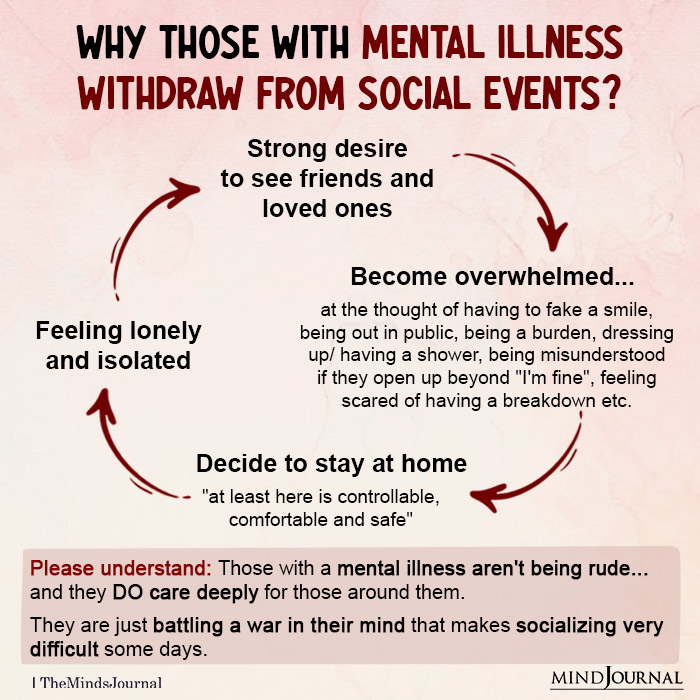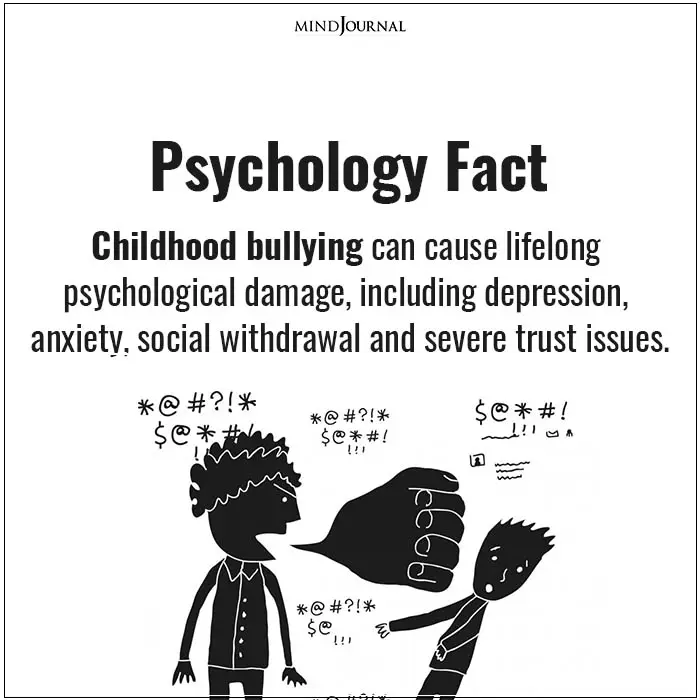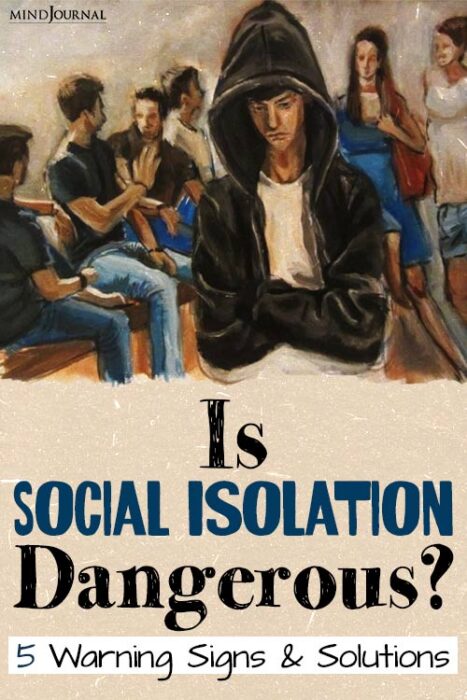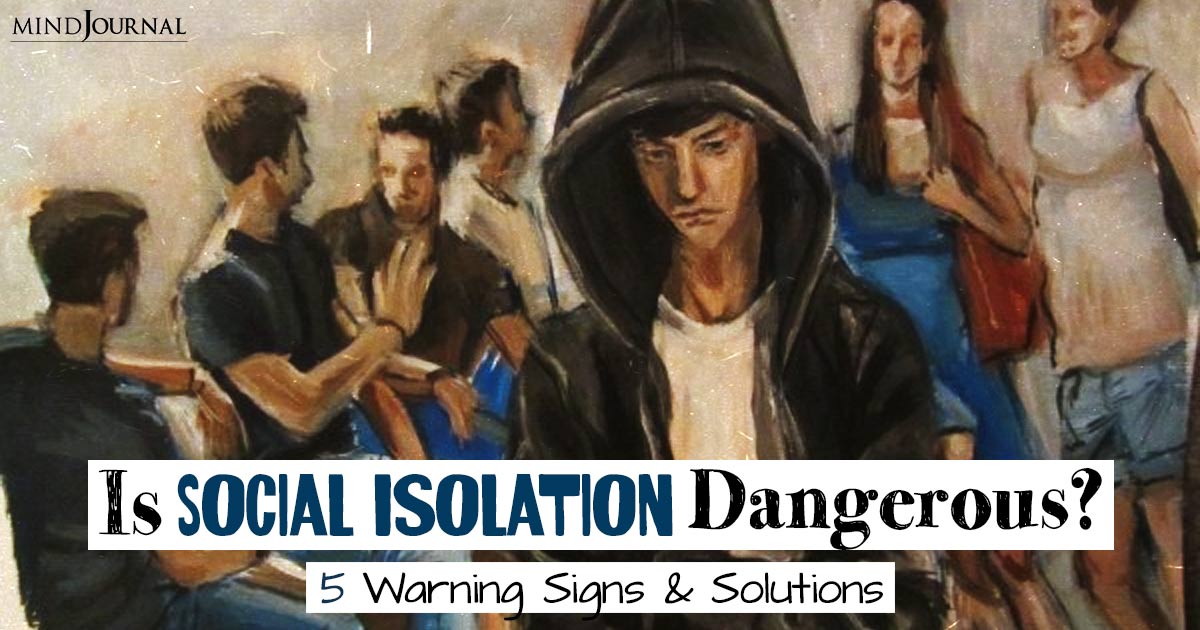Do you ever feel like just running away from everyone and hiding in your room where no one will bother you? Do you think it is better to be alone than being around people? Excessive and persistent social withdrawal can be a serious problem and the first step to overcoming it is by identifying social withdrawal symptoms.
What is Social Withdrawal?
Social withdrawal is defined as an ongoing pattern of avoiding or reducing social interaction consistently over time. It often involves a strong preference for being alone and reduced interests in engaging in any form of social activities.
Researchers explain that it is primarily used as an umbrella term to define someone’s “voluntary self-isolation from familiar and/or unfamiliar others through the consistent display of solitary behaviors such as shyness, spending excessive time alone, and avoiding peer interaction.”

Even though some degree of isolation might be a useful coping mechanism, long-term withdrawn behavior in adults could lead to decreased mental health and emotional well-being marked by loneliness and isolation.
Related: Understanding Avoidance Coping Mechanism: Why We Avoid And How to Cope
What Are Some Common Social Withdrawal Symptoms?
Understanding how social withdrawal impacts our everyday lives requires us to recognize its symptoms easily. Here are certain signs that people must watch out for:
1. Avoidance of Social Situations
A socially withdrawn person often turns down invitations to parties or other social gatherings and events. They tend to avoid friends and family members when they meet them by giving excuses.
2. Isolation and Solitude
Individuals who undergo social withdrawal usually prefer staying on their own, instead of participating in activities with their friends or family members. They may even isolate themselves physically by spending too much time indoors or avoiding public places entirely.
3. Decreased Communication
Reduced communication, both offline and online, can indicate someone has become socially withdrawn. They may deactivate or delete their profiles on social media platforms, stop responding to messages, and become less talkative in group settings, due to loss of interest over time.
4. Emotional Disengagement
When someone becomes a socially withdrawn person, they no longer feel emotionally connected to anyone. They might have no interest or feelings towards other people or in social contact. Such individuals might also struggle to express their emotions or understand others’ emotions.
5. Physical Symptoms
There are times when individuals who isolate themselves exhibit physical symptoms such as headaches, fatigue, muscle tension, and even changes in appetite. These signs are mainly caused by stress due to increased anxiety when they are amidst a gathering.
Top 5 Social Withdrawal Causes You Must Know About
Learning about social withdrawal symptoms is not enough, we must also explore the contributing factors. Addressing social withdrawal effectively requires us to understand its root causes.
Here are a number of possible reasons behind this behavior:
1. Social Anxiety
Social anxiety disorder, a common mental health problem, is characterized by immense distress about social interactions. Fear of being judged, criticized, or embarrassed can make anxious people avoid social gatherings and make them withdrawn.
2. Low Self-esteem
People with low self-esteem perceive themselves negatively and expect rejection or criticism from others. This may make it difficult for them to participate in any form of social interaction, resulting in withdrawal.
Related: 12 Signs And Symptoms Of Mental Illness You Should Never Ignore
3. Traumatic Experiences
Memories of past traumatic incidents like bullying, abuse, or a serious loss can often affect an individual’s confidence in dealing with others. Sometimes, trauma survivors would rather withdraw from relationships than expose themselves again to these risks that could cause emotional pain.
4. Mental Health Conditions
Some mental health problems including depression or panic disorders might contribute towards social isolation. Symptoms like lack of interest, constant worry or sadness can be contributing factors. This is one of the most common social withdrawal causes.
5. Introversion
While introversion is not synonymous with social withdrawal, introverted people naturally need solitude to recharge. However, too much withdrawal beyond their comfort zone can be indicative of an underlying issue.

5 Tips on How to Overcome Social Withdrawal
If you find yourself stuck in the rut of social withdrawal, remember that there is always a way out and healthy connections can be fostered. Here are some ways to overcome withdrawn behavior in adults:
1. Recognize the Pattern
The first step towards change is admitting that something is wrong. Analyze your patterns of isolation and identify what situations and triggers contribute to your self-imposed isolation from society. Successful transformation requires understanding.
2. Seek Support
Communicate with trusted friends, family members or peers who can understand your situation. They can offer support and positive feedback and necessary guidance. Sharing concerns and emotions will alleviate the stress on your shoulders while offering you insightful suggestions and directions.
3. Develop Social Skills
Improving your social skills can boost your confidence and make social interactions more enjoyable. Improve active listening, empathy, and effective communication skills for instance.
Furthermore, by joining clubs, groups and classes focused on similar interests you can find opportunities to meet like-minded individuals. This is how to overcome social withdrawal.
4. Practice Self-care
Prioritize self-care and engage in activities that promote your overall well-being. Take part in activities that you enjoy, try relaxation techniques, eat healthily, get enough sleep and maintain a healthy lifestyle.
Taking care of your physical and mental health can significantly impact your social interactions.
5. Professional Help
If you still tend to isolate yourself, then consulting a therapist or a mental health professional might be a good idea. They can provide valuable guidance and support and help you identify any underlying causes. A therapist can also help you develop practical strategies to overcome your withdrawal.
Related: 5 Crucial Signs Your Mental Health Is Falling Apart
Takeaway
Social withdrawal can be a difficult experience, but it’s important to remember that identifying social withdrawal symptoms and implementing strategies on how to overcome social withdrawal can help you break the cycle.
Remember, progress takes time, so be patient and compassionate to yourself. Embrace the journey of healing and learn to enjoy meaningful social interactions.
Frequently Asked Questions (FAQs):
How do you overcome social withdrawal?
The best way to overcome social withdrawal is to slowly expose yourself to social activities, seek support, and to prioritize self-care.
What are the symptoms of withdrawn behavior?
Most common symptoms are avoiding social situations, reduced communication, and loss of interest in activities.
Why am I withdrawing from people?
It may happen as a result of excessive stress, anxiety, depression, emptiness, lack of meaningful connections or a need for solitude and introspection.









Leave a Reply
You must be logged in to post a comment.